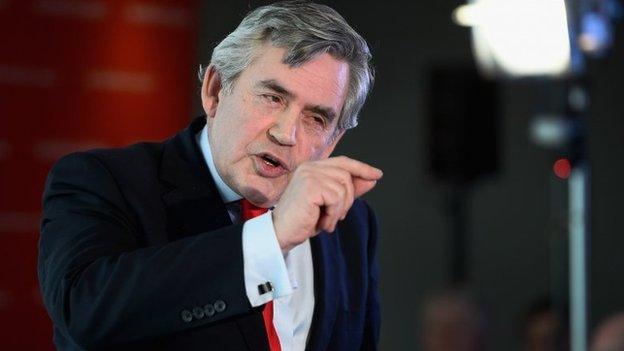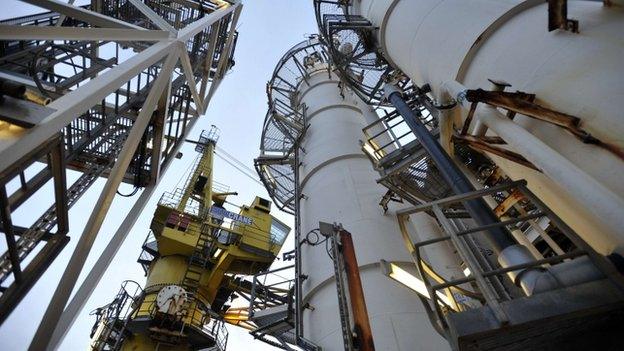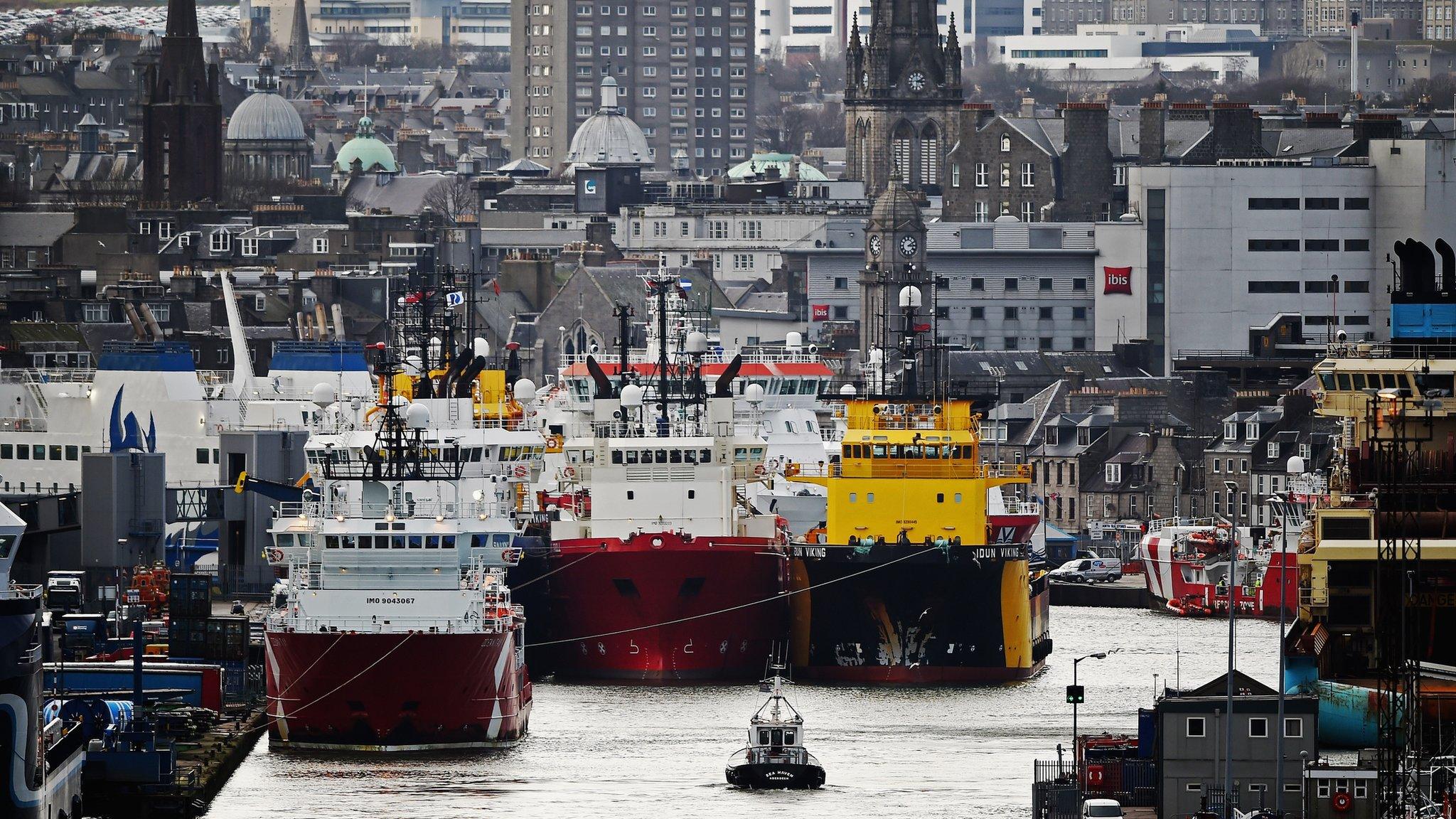Gordon Brown: nationalise the oil fields
- Published

Gordon Brown is starting his final month as an MP with a thundering speech on the economy. It's the only type of speech he's ever done.
He's chosen to do so as Scottish Labour leader Jim Murphy also sounds off on economic policy, and just before Nicola Sturgeon re-styles the Scottish government's economic strategy, with a strong flavour of equality running through its "refreshed" priorities.
The first minister has, incidentally, made her predecessor's Council of Economic Advisers, external a bit more equal - of ten members, four are women, seven professors, five non-economists, five based outside Scotland and as many people of Italian parentage as there are Nobel laureates - two of each.
One new member, Prof Mariana Mazzucato, is well worth watching for her influence on Scottish government policy.
The Sussex economist has written about "the entrepreneurial state - debunking the private versus public myth", demonstrating how state intervention, investment and ownership can work well, particularly in driving forward innovation where it is too risky for private investors.
The entrepreneurial state might, for instance, include Norway and many other oil-rich nations where the government took a stake in the ownership and development of the asset.
While the UK's stake has been limited to taxing the profits, across the North Sea, public ownership has been an important part of the success story behind that huge oil fund.
Man with a plan
And that brings us back to Gordon Brown. After the former prime minister's political trajectory, who'd have thought that some of his final words as a Right Honourable Member would be a call for the nationalisation of Britain's oil fields?
OK, so it's not quite as that might seem. His speech, later today, will pick up on the current concerns that a low oil price will lead to producers shutting down the UK's least profitable (or most loss-making) oil fields prematurely.
The speech will also return to a time-honoured policy flourish from the Kirkcaldy and Cowdenbeath MP - setting a target for creating 100,000 jobs:
"We must aim to create high-quality, well-paying, high-tech, secure jobs based around medical, information and environmental technologies and I will set out a plan to do so," he is to say.
So that's the retirement job sorted, then.

But back to the North Sea. As we've heard for some time now, if one platform or pipeline closes, then surrounding fields and prospects for further investment could be cut off from their route to market.
Gordon Brown's idea is for government to get alongside the companies affected and offer to partner them.
It seems that, by taking a stake in future reserves and returns, the government could be the means to ensure that future options for ageing fields are kept open.
And if the operators don't like the sound of that, the fields could be handed over to the government, to keep the infrastructure maintained.
That would be pending a market upturn or the kind of technological breakthrough that makes small or geologically awkward reserves recoverable and financially viable.
Picking winners
The cost of doing that? Well, once a former MP, that won't be Gordon Brown's problem. But the cost of maintaining old platforms and pipelines looks quite pricey, at least judging by the recent record of North Sea activity, prolonged periods of inactivity, and spiralling costs.
And bear in mind that these are fields which may never produce again. So who pays for decommissioning?
Unlike Prof Mazzucato, free marketeers have for many years warned governments against trying to "pick winners" in business and markets.
Forty years on, taking over ownership of old, unwanted and financially non-viable oil fields doesn't look like making that error.
- Published24 February 2015
